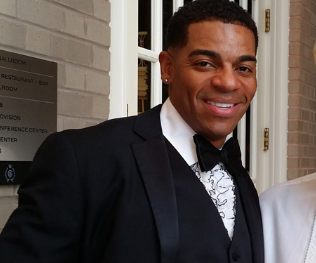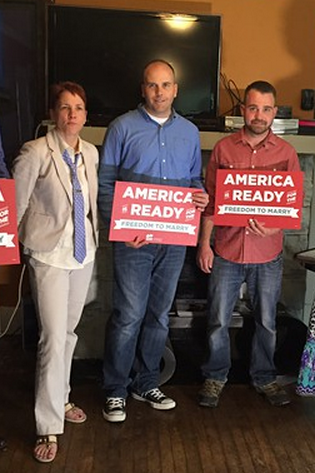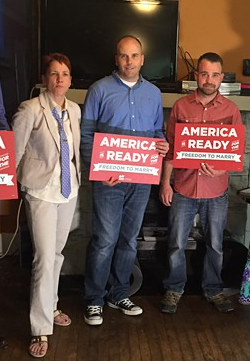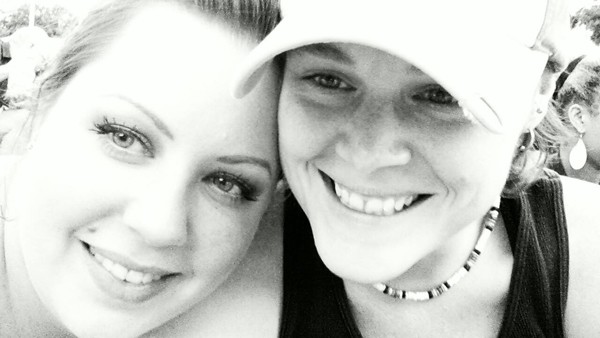
Davin Clemons
Memphis Police officer Davin Clemons, a TACT officer who serves as the department’s LGBTQ liaison, has filed a lawsuit against the city of Memphis and the Memphis Police Department (MPD) alleging discrimination based on his sexual orientation, his disability, and his religion.
He’s being represented by attorney Maureen Holland, the local attorney who was involved in the Obergefell v. Hodges U.S. Supreme Court case that led to same-sex marriage being legalized across the country.
MPD’s LGBTQ liaison role was re-started in 2014 after a lull in participation, and Clemons was the first MPD officer named to the role after its re-launch. In that role, he’s responsible for helping to build trust between the LGBTQ community and the police department. But Clemons alleges that role has backfired, causing some superior officers to discriminate against him because he is gay.
After being appointed as liaison in August 2014, Clemons claims he was harassed, reprimanded, and humiliated by other officers.
Much of the discrimination came from an officer named as Lt. Hulsey in the lawsuit. One incident says Hulsey approached Clemons on Beale on July 4th, 2014, and “yelled and degraded Officer Clemons in front of thousands of citizens at a Fourth of July event. … Officer Clemons believes that Lt. Hulsey engaged in this behavior due to sexual stereotypes and, in particular, a belief that Officer Clemons was not sufficiently masculine, was too feminine, or due to a belief that men should only date women, not other men.”
Clemons also claims he has been discriminated against for a medical condition. Clemons has been diagnosed with pseudofolliculitis barbae, a condition that causes serious breakouts on the face after shaving, and his doctor has recommended that he not shave. He had a “shaving profile” on file with MPD, which was supposed to prevent the MPD from forcing him to shave his facial hair (a requirement of most officers). Clemons has said superior officers have harassed him and forced him to shave, despite his doctor’s orders.
Additionally, Clemons claims discrimination based on his religion. Clemons and his partner Darnell Gooch (also a Memphis police officer) founded Cathedral of Praise Church of Memphis, an LGBTQ-inclusive church. Clemons claims he’d asked off for a religious observance on August 13th, 2014, and he’d been granted the day off by a Lt. Jenkins, but the lawsuit says Hulsey refused to remove Clemons from an overtime detail.
Reads the lawsuit: “This incident lead to a heated verbal disagreement between Officer Clemons and Lt. Hulsey whereby Lt. Hulsey was yelling and screaming and pointing his finger at Officer Clemons and saying that he (Clemons) is going to work the mandated overtime. Officer Clemons objected to working a voluntary overtime on a mandatory basis. Officer Clemons did not yell or scream at Lt. Hulsey in voicing his disagreement. Officer Clemons requested a witness or union representative and Lt. Hulsey denied it. … Officer Clemons was charged with insubordination and disobedience of an order and originally given a 20-day suspension.”
At another time, Clemons, who has a leadership role in his church, claimed Hulsey called him a “false prophet” and that Clemons’ faith “is not to be taken seriously because Officer Clemons is gay.”
“The purpose of the LGBTQ liaisons is to improve trust and relationships, but this is not possible if the appointed Memphis Police LGBTQ liaison is being discriminated against, harassed, and retaliated against due to his participation as a LGBTQ liaison and due to his sex, religion, and disability,” reads the lawsuit.
The suit claims the alleged discrimination against Clemons is a violation of Title VII of the Civil Rights Act of 1964 and the Americans with Disabilities Act.
Clemons is seeking at least $300,000 in compensatory damages and losses, back pay, lost benefits, and other economic losses. He would also like the officers named in the suit to receive training to prevent discrimination based on sexual orientation.
Holland released the following statement from Clemons: “I’m proud to be a police officer for the MPD. I do, however, want to be treated fairly on the job. I believe that all employees should be treated fairly, based on the quality of their work, not on their sexual orientation, religious beliefs, disability, race, color, ethnicity or any other legally protected characteristic. The purpose of this suit is to protect the right of city employees to fair and nondiscriminatory treatment. I am a committed police officer and want to continue my work without interference and discrimination.”
At a press conference introducing the new Memphis Animal Services director Friday afternoon, Mayor Jim Strickland said he could not comment on Clemons’ lawsuit.
Read the lawsuit here:
[pdf-1]


